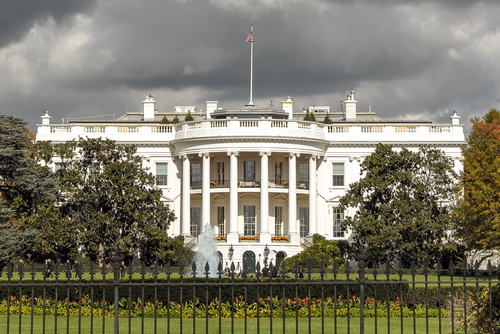Trump reportedly mulls firing Rosenstein; could the president appoint a replacement?

Shutterstock.com.
President Donald Trump is reportedly considering firing Deputy Attorney General Rod Rosenstein, who is overseeing the special counsel’s investigation of Russian influence in the 2016 presidential election.
Trump is considering more aggressive action to rein in Robert Mueller after the FBI’s Monday raids on the offices and temporary home of the president’s personal lawyer, Michael Cohen, two anonymous sources tell CNN. Trump is considering several options, including firing Attorney General Jeff Sessions, but Rosenstein is the most likely target, according to CNN.
Some associates have told Trump that firing Rosenstein would have fewer repercussions than other actions, while others have warned of potential outrage should Trump follow through.
Trump is being advised that he could justify his firing of Rosenstein because of slow document production in response to requests by a House committee investigating several issues, including the FBI’s handling of the probe into Hillary Clinton’s use of a private email server while secretary of state. U.S. Attorney John Lausch of Chicago was recently tapped to oversee the document production.
The Washington Post considers whether Trump would be able to name Rosenstein’s replacement.
If Trump fires Rosenstein, authority to oversee the special counsel would fall to Solicitor General Noel Francisco until a new deputy attorney general is named. Trump could claim authority to name Rosenstein’s successor under a 1998 law governing filling of vacant positions, the Vacancies Reform Act. But it’s not clear the law applies when a person is fired, according to Georgetown University law professor Paul Butler, who spoke with the Post in July.
The statute says it applies when the current officeholder “dies, resigns or is otherwise unable to perform the functions and duties of the office,” Butler said. “That suggests that there might be a difference, and the act might not apply if the person is fired.”
Some senators had maintained during debate that the law kicks in after a firing, however.
If Trump appointed a deputy attorney general who was willing to rein in the special counsel, that person could place restrictions on the probe, Georgetown University law professor Louis Seidman told the Post.
“Depending on how aggressive this person wanted to be, they could dismiss the criminal cases, they could get rid of the grand jury,” Seidman said. “In the end, if Trump is determined, the people he appoints could shut it down.”
If Trump were to succeed in shutting down the special counsel probe, a state attorney genera—such as New York’sEric Schneiderman—could begin an investigation. “They can’t shut down a state investigation,” Seidman said, and Schneiderman “would suddenly become a household name.”
Trump diatribes against Rosenstein, Sessions and Mueller have “become a dependable part of the fabric of life working for this president,” according to the New York Times, which relies on information from an anonymous former adviser. The source told the Times that Trump aides have become conditioned to wait until the president had raised an issue at least three times before acting on it.
The article notes that Trump had sought to fire Mueller in December after reports that a subpoena had been issued regarding the president’s business dealings with Deutsche Bank. Trump lawyers learned the subpoenas were related to people affiliated with Trump and not his business dealings, which led Trump to drop the idea.
It was the second time Trump had ordered Mueller fired. The first time, Trump reportedly did not act after pushback from White House counsel Don McGahn.



